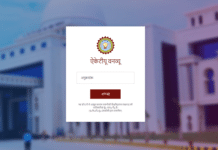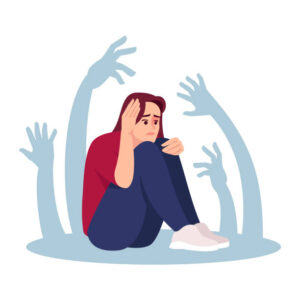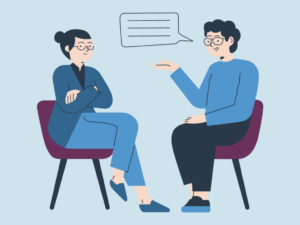Towards a Mental Health Epidemic: Addressing the Crisis
After the emergence of COVID mental health is one of the aspects where limelight spotted. When people lost their jobs, education was affected, people lost lives and everyone was scared of a virus roaming in the air. This was indeed a traumatic phase in the lives of people leading to a cumulative mental health crisis in the world.
The data of NCBI states that the “Median Age of COVID-related suicide victims was 45 years (range 15 – 80) wherein 61.3% belonged to 30-59 year age group, and 75.3% were males. 50% of suicides occurred within the first week of COVID-19 diagnosis confirmation, and 50% of suicides occurred at COVID-19 centres. Hanging (53.8%) was the commonest method of suicide, followed by jumping (12.9%)” in a research study.
Thus this shows that such an attack on global mental well-being has pushed societies towards another pandemic of mental health crisis.
Mental health problems that we can face
Depression:
Depression is a mood disorder defined by sadness, mood lability (a low mood on one end among other issues), problems with sleeping and appetite, and without energy or good sleep, this can be extra hard for some people. The good news is that depression has high survival potential if treated effectively as with most other mental disorders.
Anxiety
Anxiety disorders as a category of disease are commonly characterized by both chronic worry and numerous physical manifestations of fear that can cause significant problems. There are many forms of anxiety disorder, each with its symptoms, including Generalized Anxiety Disorder, Social Anxiety Phobia, Panic Disorder Agoraphobia OCD PTSD ( or Post Traumatic Stress Disorder). We can frequently observe frequent anxiety disorders in individuals experiencing a kind of despair Situational anxiety disorder, might occur at any age.
OCD
Obsessive-Compulsive Disorder is characterized by intrusive thoughts, images, or urges that cause feelings of discomfort and distress as a result, an individual may feel compelled to perform overt or mental rituals to alleviate or reduce these feelings. These behaviours often consume several hours of every day and can severely impair one’s ability to maintain a job concentrate in school interact with friends or family etc. Effective treatments include cognitive and behavioural therapy (CBT) and medication. See AED regulations, to understand that OCD is about anxiety and compulsive behaviour.
PTSD
Trauma or Stress-Related Disorders It is possible to develop PTSD when exposed to a catastrophic event, which generates a continual sense of dread especially with triggering sounds or with social interaction. This sense of fear can take the form of flashbacks nightmares or even a change in one’s perception as a consequence of exposure to the traumatic event – one of the most pronounced symptoms associated with PTSD itself itself. PTSD is often implicated in hiding in a shell to avoid getting triggered by their possible superstitions) and the more such events a person experiences theoretically larger the effect too.
Lack of mental health professionals
India has only about 0.7 mental health professionals for every one lakh persons. The standard guidelines suggest that there should be at least three psychiatrists per one lakh population. Such a deficit in the population psychologist ratio is alarming as no one will be there in the case we suffer mental health disorders when they reach their apex. The status of mental health professionals is infirm.
People have a lot of prejudice regarding mental health problems, and it is not in a normalized state. Thus, the preference for treatment for mental health problems seems to be elusive. We are living in a society where mental health professionals are themselves convincing people why their treatment is necessary. Thus it is high time that we move towards spreading awareness regarding the significance of good mental health.
Tips to have a good care of mental health
- Seek help when needed:- Seeking for help is an act of courage. It doesn’t mean that you are weak but it means that you have a desire to cure yourselves. Thus whenever needed you must move to a mental health professional to get therapy whenever required.
- Eat a balanced diet:- You must pursue a nutritious and balanced diet to maintain a balanced and healthy body. Our body is an essential component of good mental health.
- Get enough sleep:- We must maintain a fixed sleep cycle for us. This will direct our body to the timings of relaxation that help the mind to release the stress and relax.
- Stay Connected: Maintain relationships with friends and family. Social connections are essential for emotional support.
- Exercise Regularly: Physical activity helps reduce stress and anxiety. Aim for at least 30 minutes of moderate exercise most days of the week.
Thus in a nutshell we shall conclude that having a good mental health is something a necessity of time. We should learn to prioritize our mental health and normalize its treatement to get a happy society.





















